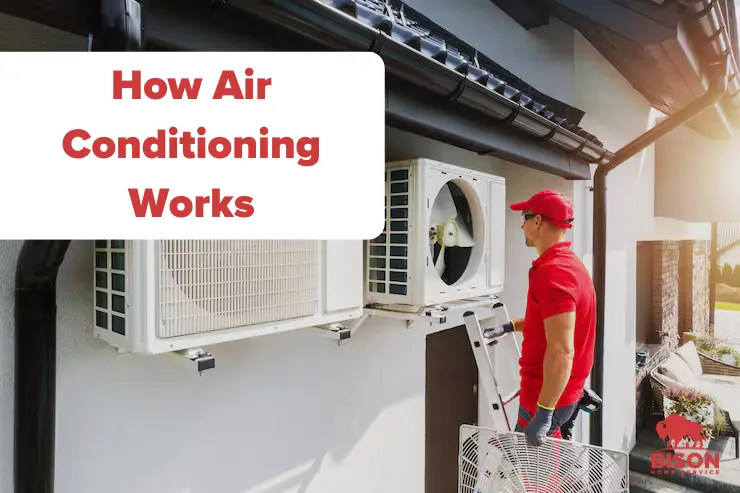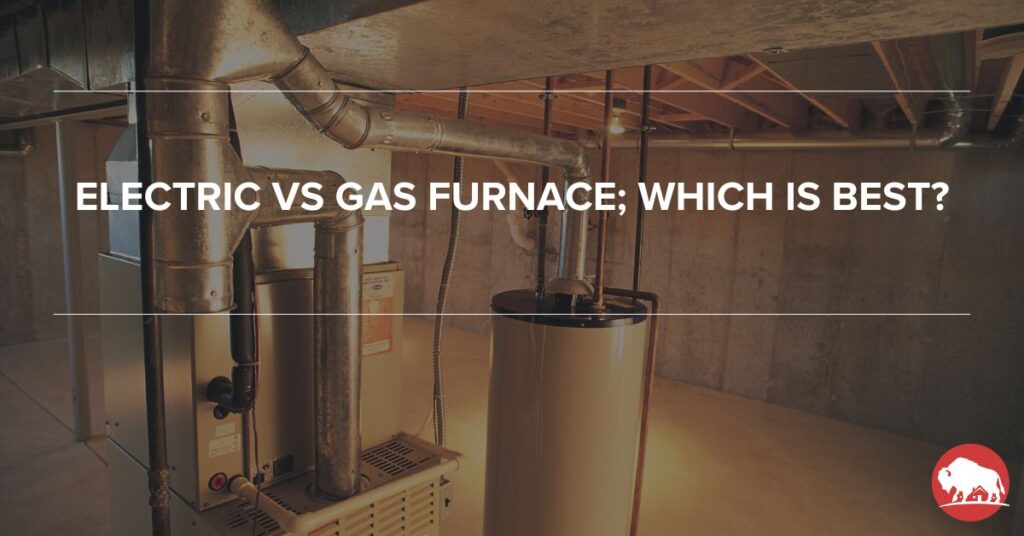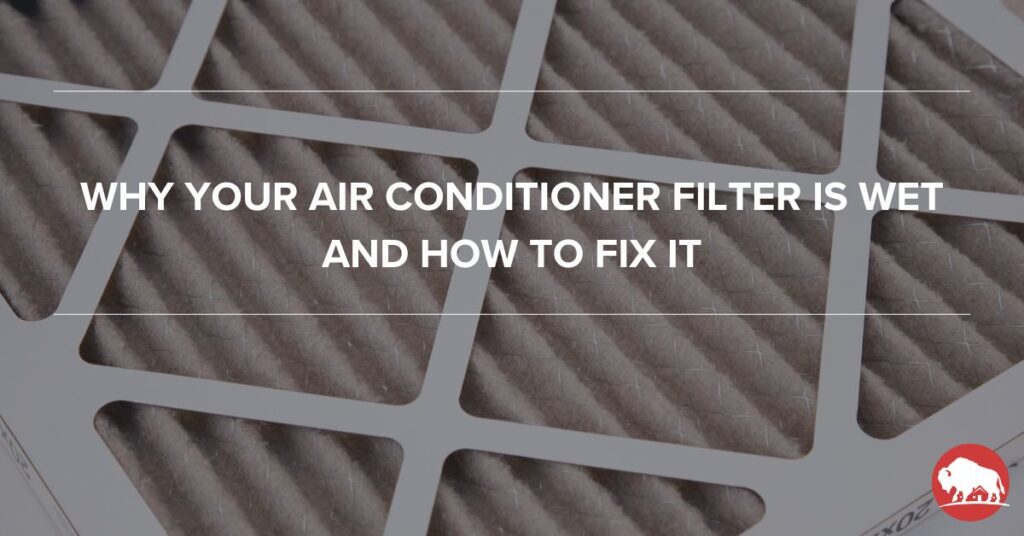Air Conditioners are an essential in our homes and workplaces, especially in Northern Colorado where it can get HOT in the summer! Let’s face it, we need Air Conditioning in our lives. But how does it actually work? We’ll go over all the information you need to understand how Air Conditioning works, various types of AC units, benefits, and maintenance tips. With this knowledge, you can make an informed decision while purchasing or maintaining an air conditioner and selecting the best air conditioning services.
How Air Conditioning Removes Heat and Keep Your Space Cool
Air Conditioning isn’t too complicated. It removes heat from indoor air and releases it outside, which leads to cooling the interior space. Duh! Here is how that process actually happens:
Evaporation
- Warm air from the room is drawn into the air conditioner and passes over an evaporator coil filled with refrigerant. The refrigerant absorbs the heat from the air, turning it into a cool gas.
Compression
- The cool gas moves towards the compressor, where it is compressed into a high-pressure gas.
Condensation
- This high-pressure gas moves to the condenser coil located outside the building. Here, it releases the absorbed heat into the outdoor air and condenses back into a liquid.
Expansion
- The high-pressure liquid refrigerant passes through an expansion valve, turning back into a low-pressure liquid. This cycle repeats continuously to maintain a cool indoor environment.
Benefits of Air Conditioning
Air Conditioning offers several advantages that improve the comfort and productivity of your home by keeping it cold. If you didn’t already know the benefits of an Air Conditioner, here are some key benefits:
Temperature Control
- Air Conditioners maintain a consistent and comfortable indoor temperature, which is crucial for comfort and well-being during extreme weather conditions (think about those hot summer days in Fort Collins).
Improved Air Quality
- Modern Air Conditioners are equipped with filters that trap dust, pollen, and other airborne particles, improving indoor air quality and reducing allergens. This can help with those seasonal allergies in spring and fall.
Increased Productivity
- A comfortable temperature can significantly increase productivity and concentration levels in work environments, making air conditioners essential for offices. No one is productive when they are sweating profusely!
Better Sleep
- A cool room promotes better sleep, which is essential for health and well-being. It helps create an ideal sleeping environment, especially during hot summer nights. A colder room will actually help you sleep longer and deeper!
Energy Efficiency
- Modern ACs are designed to be energy-efficient, reducing electricity consumption and lowering utility bills. Check out How to Lower Air Conditioning Cost in our previous blog!
The Best Air Conditioner For YOU
There are various types of air conditioning units, each suited to different needs, environments, and sized spaces. Here are the most common types:
Window Units
- These compact AC can be installed in a window and are used for cooling a single room. They are very affordable and installed easily but may block the view from the window. These are great for a single room, even for a bit of a larger room, but won’t do the job for an entire home.
Split Systems
- A ductless HVAC system, or mini-split, is a type of air-conditioning and heating system that uses individual, wall-mounted blowers to provide temperature control in one room or area. Instead of using ductwork, the individual units are connected by a refrigerant line set to a single outdoor condensing unit. professionals for installation.
Portable Units
- These ACs can be moved easily & offers flexible cooling solutions. They are easy to install and perfect for temporary cooling needs but less efficient than permanent units. Great to put on your desk, terrible to cool an entire room.
Central Air Conditioning
- Central air conditioning systems are best for cooling your entire home. They distribute cool air through a network of ducts and vents, providing uniform cooling throughout the building. These systems are more expensive to install but they offer superior comfort and efficiency. This is your best choice if you are looking to cool your entire home efficiently!
Factors While Selecting the Right Air Conditioner
As you just read, there are a ton of different options to factor in to choose the best air conditioning unit for your home. When selecting an AC, consider the following factors to ensure you choose the right unit for your needs:
Room Size
- Measure the size of the room or area you need to cool. ACs are rated by their cooling capacity, measured in British Thermal Units (BTUs). Larger rooms require higher BTU units.
Energy Efficiency
- Look for AC with a high Energy Efficiency Ratio (EER) or Seasonal Energy Efficiency Ratio (SEER2). These ratings indicate the unit’s efficiency; higher ratings mean better energy savings.
Noise Levels
- Consider the noise level of AC, especially for bedrooms and offices. Ductless mini split systems and central ACs are typically quieter than window or portable units. Not many people think about the noise level of their air conditioning unit, but it plays a HUGE factor in their enjoyment of their unit down the line.
Installation Requirements
- Some ACs, like window units and portable units, can be easily installed by yourself. Others, like ductless mini split systems and central air conditioning, require professionals for installation.
Additional Features
Modern Air Conditioning units can come with various features like programmable thermostats, remote controls, sleep modes, and air purifiers. Select a unit with features that inform your comfort and convenience. Some of these new features can help you save a few bucks on your electric bill.
The Importance Of Professional HVAC Services For Your AC System
Professional HVAC technicians are essential for the proper installation, maintenance, and repair of your air conditioning system. Here are the HVAC services you should consider:
Installation Services
- Hire professionals to install your AC properly to maximize its efficiency and performance. HVAC technicians can assess your space, recommend a suitable unit, and handle all the installation process.
Maintenance Services
- Regular AC maintenance by HVAC professionals includes cleaning coils, replacing filters, checking refrigerant levels, and inspecting the overall system. This keeps your AC running efficiently and extends its lifespan.
Repair Services
- HVAC technicians can diagnose and repair any issues with your AC, from refrigerant leaks to compressor failures. Regular AC repairs prevent minor issues from becoming major problems.
Replacement Services
- If your AC is old or beyond repair, HVAC services can help you choose and install a new unit that meets your needs and budget.
Energy Audits
- HVAC professionals can conduct energy audits to identify areas where your home or office can improve energy efficiency. It helps in reducing utility bills and environmental impact.
Air Conditioning Maintenance Tips For a Long-Lasting AC Unit
Regular maintenance is essential for keeping your air conditioner running smoothly and extending its lifespan. Too many people buy their Air Conditioning unit, and then never maintain it, leading to them needing to buy a new AC unit years down the line. You can avoid this with these simple air conditioning maintenance tips:
Clean or Replace Filters
- Dirty filters can reduce the efficiency and air quality. So, clean or replace filters every month or as recommended by the manufacturer.
Inspect Coils
- Clean the evaporator and condenser coils annually to prevent dirt buildup, which can reduce your AC efficiency.
Check the Thermostat
- Ensure your thermostat is functioning correctly and set it to an energy-saving temperature when you’re not at home.
Clear Debris
- Keep the area around the outdoor unit free of debris, such as leaves and grass, to get the proper airflow.
Schedule Professional Maintenance
- Contact professional technicians to perform annual maintenance and checks to make sure your AC is in top condition. With their experience, they are able to recognize any problems and address them before they grow.
Air Conditioning Sickness
- Air conditioning itself isn’t inherently bad for you. In fact, it can be a blessing for those with respiratory issues like asthma. However, problems arise when your AC interacts with bacteria, fungi, mold, and mildew. If your home or office isn’t kept clean, your AC can end up circulating allergens that make you sick.
5 Energy-Saving Tips For Your Air Conditioner
To maximize the efficiency of your air conditioner and save on energy costs, follow these energy-saving tips:
Use a Programmable Thermostat
- When you leave the house, turn the thermostat up; when you come back, turn it down. You can save both money and energy by doing this.
Fix Leaks
- To stop cool air from getting out, make sure your house is properly insulated and fix any leaks around windows and doors.
Use Fans
- Ceiling fans and portable fans can help circulate cool air, reducing the workload on your AC.
Close Curtains and Blinds
- Close curtains and blinds during the hottest part of the day to block out sunlight and reduce indoor temperatures.
Limit Heat-Generating Activities
- Avoid using heat-generating appliances, such as ovens and dryers, during the hottest part of the day. This reduces the heat load on your AC.
Common Air Conditioning Problems
AC can face various issues over time. Nothing lasts forever, so here are a few regular problems you will encounter along with solutions:
AC Not Cooling
- Check the thermostat settings then clean or replace the filters, and make sure the outdoor unit is free of debris. If the problem persists, it may be a refrigerant leak or compressor issue requiring professional repair.
Poor Airflow
- Clean or replace the filters, check the ductwork for obstructions, and ensure the vents are open. If the issue continues, it may be a blower motor problem.
Strange Noises
- Unusual noises such as grinding, squealing, or rattling can indicate a mechanical issue. For an inspection and repair, turn off the appliance then get in touch with an experienced technician.
Water Leaks
- Check the condensate drain for clogs and ensure the unit is leveled correctly. If the problem persists, it may be an issue with the drain pan or pump.
Frequent Cycling
- If the AC frequently turns on and off, it may be an issue with the thermostat, refrigerant levels, or electrical components. To get an inspection and repair, speak with an experienced technician.
Summary
Air Conditioning units are essential for maintaining a comfortable indoor environment at your home, especially during hot weather. By understanding how air conditioners work, their benefits, and the different types available, you can make an informed decision when purchasing an air conditioning unit. Proper installation and regular maintenance are essential for ensuring efficient operation and longevity. Investing in a high-quality AC and taking good care of it will improve your comfort and keep you cool all summer long. Whether you need a window unit for a single room, a split system for multiple rooms (or a single room, depending on how many indoor units you have), or a central air conditioning system for your entire home, there is an air conditioner to meet your needs. Contact Bison Home Service & we will help you choose the best unit for your home. Follow installation and maintenance tips, and practice energy-saving habits to maximize your AC efficiency and performance. Using professional HVAC services for installation, maintenance, and repairs will make sure your system operates at its best, providing you with years of reliable comfort. Stay cool this summer!






